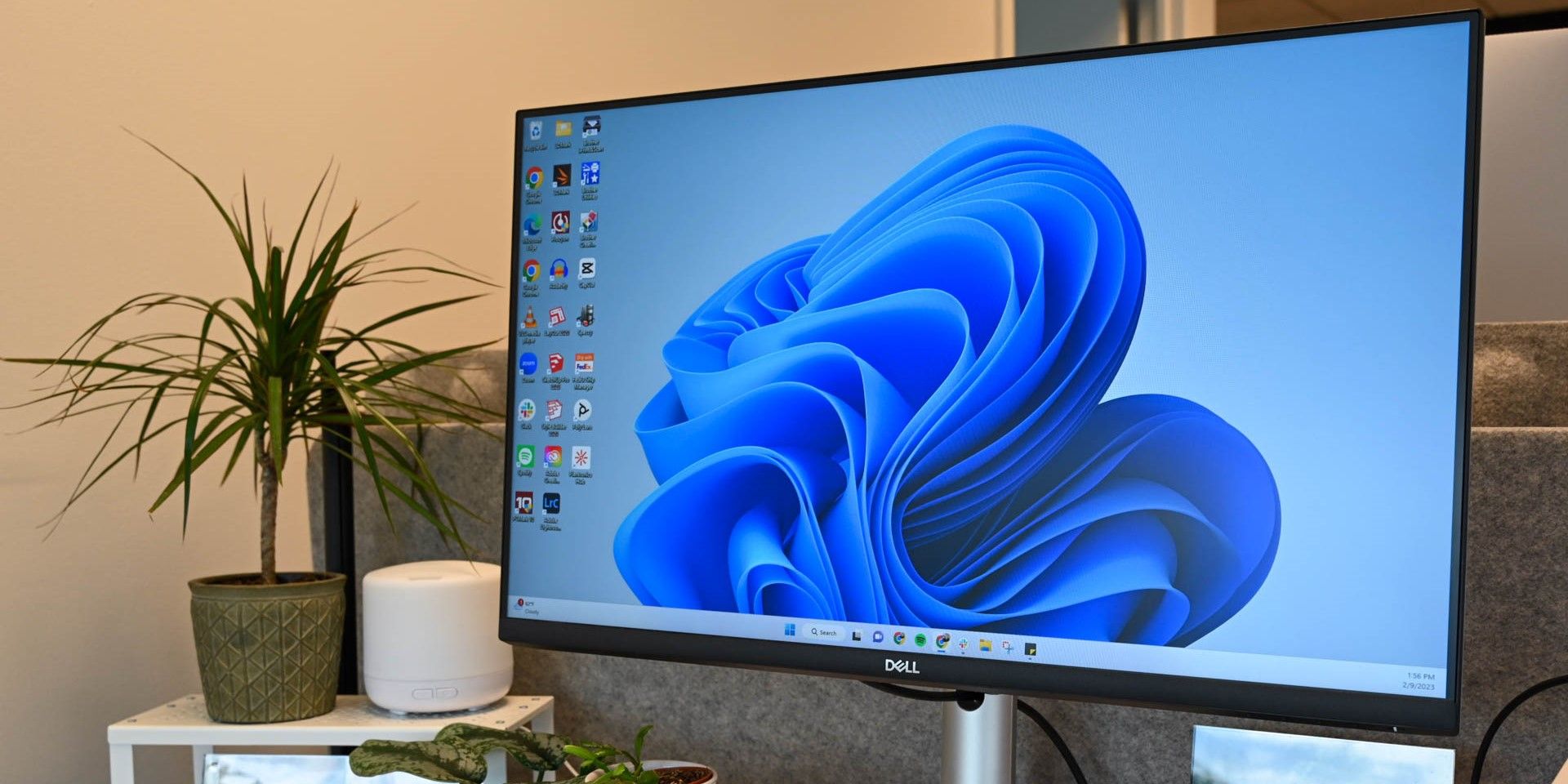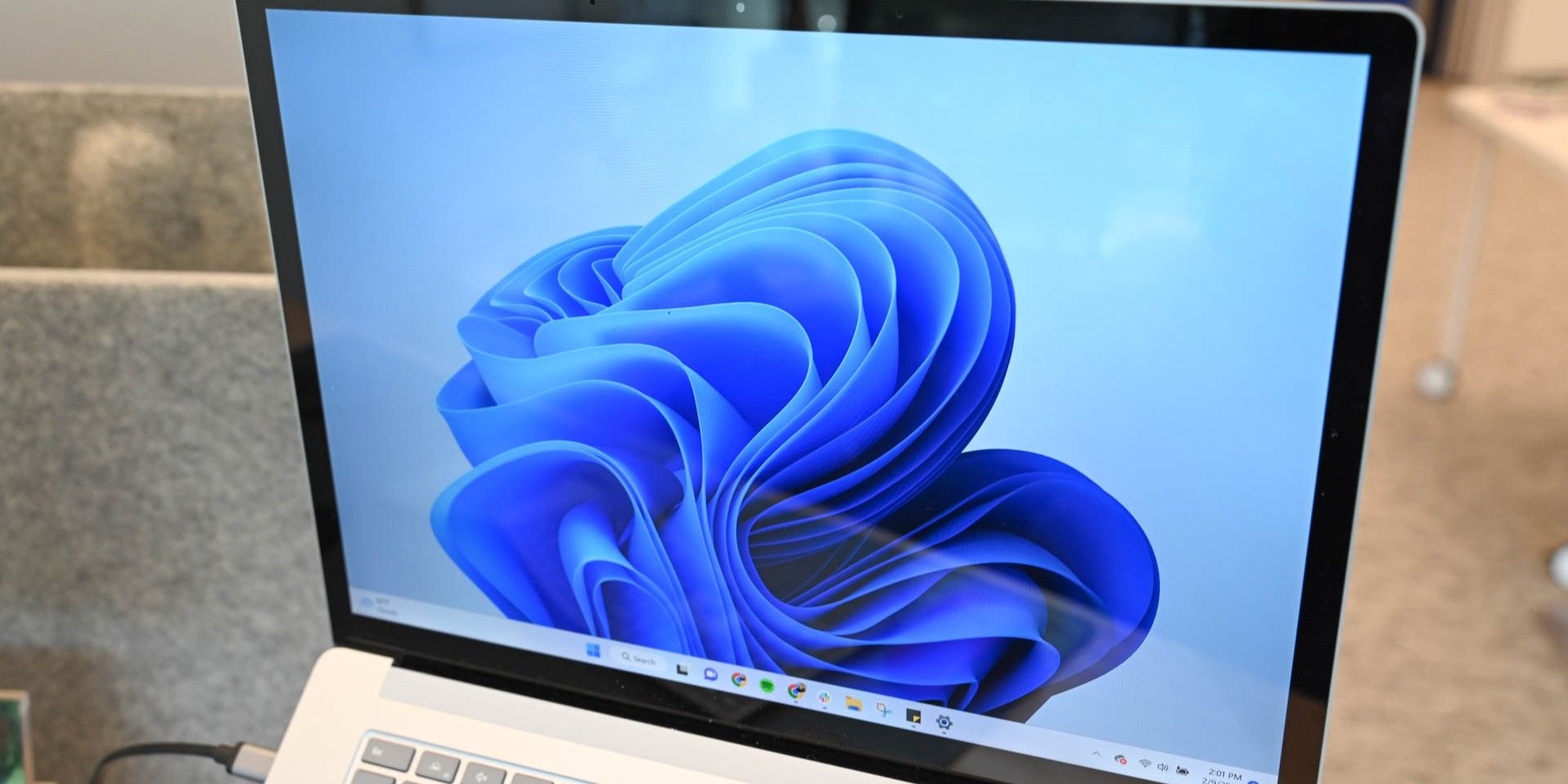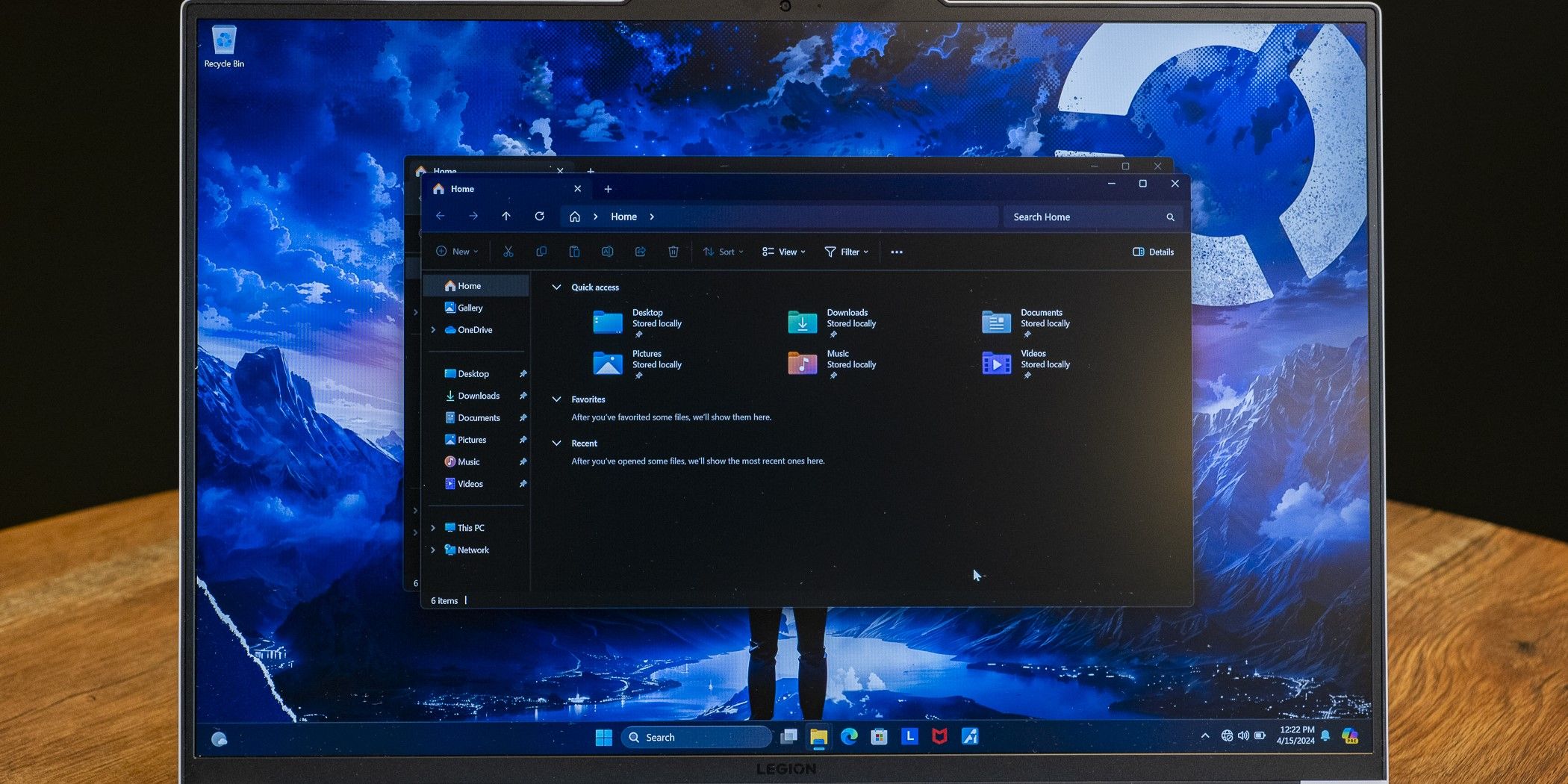
Navigating New Horizons in PC Operating Systems: Homes Vs. Pro Win11

Navigating New Horizons in PC Operating Systems: Homes Vs. Pro Win11
Disclaimer: This post includes affiliate links
If you click on a link and make a purchase, I may receive a commission at no extra cost to you.
Key Takeaways
- Windows 11 has two main editions: Home for most users and Pro for those who need advanced features like BitLocker and Hyper-V.
- Both editions have the same minimum hardware requirements, but Windows 11 Pro supports dual CPU systems and offers additional business features.
- Windows 11 Home no longer supports local accounts, while the Pro edition continues to provide this option without the need for a Microsoft account.
Windows 11 introduced an all-new UI and UX and several new features, including Copilot, which arrived with version 23H2. It is the successor to Windows 10, the last OS to support 32-bit processors.
Like Windows 10, Windows 11 comes in different editions—Windows 11 Home and Windows 11 Pro. But what are the differences between both editions, and, more importantly, which should you get?
Why Are There Different Windows 11 Editions?

Hannah Stryker / MakeUseOf
Microsoft offers multiple editions of the Windows OS because not everyone needs every feature, and not every computer supports every feature.
Microsoft has a history of releasing different editions. Windows XP had two main versions: Windows XP Home Edition and Windows XP Professional. Windows Vista and Windows 7 complicated things further by introducing several versions. Microsoft reduced the number of editions in Windows 8 before cutting it down to just two with Windows 10.
Like Windows 10, Windows 11 offers Windows 11 Home or Windows 11 Pro for consumers, along with Windows 11 Pro for Workstations, Education, Enterprise, and more. But for the most part, Home and Pro are the only two editions you should know about.
Let’s dive into the details and differences between these two editions.
What Is the Difference Between Windows 11 Home and Pro?

Hannah Stryker / MakeUseOf
Windows 11 Home is available on most computers, while Windows 11 Pro, which includes a handful of additional features, ships with more expensive or business-focused systems.
Windows 11 Home contains all the features you expect from Windows 11, including Windows Hello, Secure Boot, Windows Security, parental controls, device encryption, Copilot, and more. Even features like WSL (Windows Subsystem for Linux) are available.
On the other hand, Windows 11 Pro has everything the Home version has, but you also get additional features:
- BitLocker encrypts drive volumes using 128-bit or 256-bit AES encryption and your computer’s TPM.
- A full suite of business management and deployment tools, including Azure integration and features like assigned access, dynamic provisioning, and kiosk mode setup.
- Hyper-V to create and manage virtual machines (Windows and Linux).
- Windows Sandbox to test and run sketchy apps and software in an isolated environment.
- Windows Remote Desktop to remotely connect to and control other Windows PCs .
Another point of difference is that Windows 11 Home no longer supports local accounts and requires a Microsoft account. Meanwhile, the Pro edition continues to support local accounts without needing to link your Microsoft account to it. However, you can use several tricks to bypass the internet connection and Microsoft account requirements while installing Windows 11 Home.
There are also a few differences when it comes to hardware limitations. Both feature the same minimum requirements, including 4GB of RAM, 64GB of storage, a 1 GHz dual-core CPU from AMD/Intel/Qualcomm, TPM 2.0, and a DirectX 12-compatible GPU. You can bypass some hardware requirements using Microsoft’s official method or by preparing a bootable USB drive with Rufus .
However, while Windows 11 Home supports up to 64 CPU cores and 128 GB of RAM, it doesn’t support systems with two CPUs. Of course, one CPU is good enough for most users. But Windows 11 Pro supports dual CPU systems with 64 cores each (a total of 128 cores) and up to 2TB of RAM.
Which One Should I Use?

Jerome Thomas / MakeUseOf
Looking at the difference, it’s logical to think that Windows 11 Pro is the better option. The hardware requirements are the same. And even though your PC might not be used in a business environment or have crazy specifications, you can still benefit from features like BitLocker or the ability to create local accounts.
There are ways to get features like Hyper-V on the Home edition , though. So, that shouldn’t be reason enough to spend extra on the Pro edition, which is quite expensive.
Currently, Microsoft offers Windows 11 as a free upgrade from Windows 10, regardless of the edition. But if you’re buying Windows 11, a Pro license will set you back $199, while the Home license costs $139. Upgrading your operating system from Home to Pro is possible, but it will cost $99 on the Microsoft Store, making it more expensive than if you had directly bought the Pro license in the first place.
Ultimately, it all comes down to your specific use case and needs. For the most part, though, most users will be served well by Windows 11 Home. If you need a specific Pro feature, like BitLocker, you’ll probably want to go for the advanced edition. But whether that’s worth the cost is up to you.
Windows 11 introduced an all-new UI and UX and several new features, including Copilot, which arrived with version 23H2. It is the successor to Windows 10, the last OS to support 32-bit processors.
Like Windows 10, Windows 11 comes in different editions—Windows 11 Home and Windows 11 Pro. But what are the differences between both editions, and, more importantly, which should you get?
Why Are There Different Windows 11 Editions?

Hannah Stryker / MakeUseOf
Microsoft offers multiple editions of the Windows OS because not everyone needs every feature, and not every computer supports every feature.
Microsoft has a history of releasing different editions. Windows XP had two main versions: Windows XP Home Edition and Windows XP Professional. Windows Vista and Windows 7 complicated things further by introducing several versions. Microsoft reduced the number of editions in Windows 8 before cutting it down to just two with Windows 10.
Like Windows 10, Windows 11 offers Windows 11 Home or Windows 11 Pro for consumers, along with Windows 11 Pro for Workstations, Education, Enterprise, and more. But for the most part, Home and Pro are the only two editions you should know about.
Let’s dive into the details and differences between these two editions.
What Is the Difference Between Windows 11 Home and Pro?

Hannah Stryker / MakeUseOf
Windows 11 Home is available on most computers, while Windows 11 Pro, which includes a handful of additional features, ships with more expensive or business-focused systems.
Windows 11 Home contains all the features you expect from Windows 11, including Windows Hello, Secure Boot, Windows Security, parental controls, device encryption, Copilot, and more. Even features like WSL (Windows Subsystem for Linux) are available.
On the other hand, Windows 11 Pro has everything the Home version has, but you also get additional features:
- BitLocker encrypts drive volumes using 128-bit or 256-bit AES encryption and your computer’s TPM.
- A full suite of business management and deployment tools, including Azure integration and features like assigned access, dynamic provisioning, and kiosk mode setup.
- Hyper-V to create and manage virtual machines (Windows and Linux).
- Windows Sandbox to test and run sketchy apps and software in an isolated environment.
- Windows Remote Desktop to remotely connect to and control other Windows PCs .
Another point of difference is that Windows 11 Home no longer supports local accounts and requires a Microsoft account. Meanwhile, the Pro edition continues to support local accounts without needing to link your Microsoft account to it. However, you can use several tricks to bypass the internet connection and Microsoft account requirements while installing Windows 11 Home.
There are also a few differences when it comes to hardware limitations. Both feature the same minimum requirements, including 4GB of RAM, 64GB of storage, a 1 GHz dual-core CPU from AMD/Intel/Qualcomm, TPM 2.0, and a DirectX 12-compatible GPU. You can bypass some hardware requirements using Microsoft’s official method or by preparing a bootable USB drive with Rufus .
However, while Windows 11 Home supports up to 64 CPU cores and 128 GB of RAM, it doesn’t support systems with two CPUs. Of course, one CPU is good enough for most users. But Windows 11 Pro supports dual CPU systems with 64 cores each (a total of 128 cores) and up to 2TB of RAM.
Which One Should I Use?

Jerome Thomas / MakeUseOf
Looking at the difference, it’s logical to think that Windows 11 Pro is the better option. The hardware requirements are the same. And even though your PC might not be used in a business environment or have crazy specifications, you can still benefit from features like BitLocker or the ability to create local accounts.
There are ways to get features like Hyper-V on the Home edition , though. So, that shouldn’t be reason enough to spend extra on the Pro edition, which is quite expensive.
Currently, Microsoft offers Windows 11 as a free upgrade from Windows 10, regardless of the edition. But if you’re buying Windows 11, a Pro license will set you back $199, while the Home license costs $139. Upgrading your operating system from Home to Pro is possible, but it will cost $99 on the Microsoft Store, making it more expensive than if you had directly bought the Pro license in the first place.
Ultimately, it all comes down to your specific use case and needs. For the most part, though, most users will be served well by Windows 11 Home. If you need a specific Pro feature, like BitLocker, you’ll probably want to go for the advanced edition. But whether that’s worth the cost is up to you.
Windows 11 introduced an all-new UI and UX and several new features, including Copilot, which arrived with version 23H2. It is the successor to Windows 10, the last OS to support 32-bit processors.
Like Windows 10, Windows 11 comes in different editions—Windows 11 Home and Windows 11 Pro. But what are the differences between both editions, and, more importantly, which should you get?
Why Are There Different Windows 11 Editions?

Hannah Stryker / MakeUseOf
Microsoft offers multiple editions of the Windows OS because not everyone needs every feature, and not every computer supports every feature.
Microsoft has a history of releasing different editions. Windows XP had two main versions: Windows XP Home Edition and Windows XP Professional. Windows Vista and Windows 7 complicated things further by introducing several versions. Microsoft reduced the number of editions in Windows 8 before cutting it down to just two with Windows 10.
Like Windows 10, Windows 11 offers Windows 11 Home or Windows 11 Pro for consumers, along with Windows 11 Pro for Workstations, Education, Enterprise, and more. But for the most part, Home and Pro are the only two editions you should know about.
Let’s dive into the details and differences between these two editions.
What Is the Difference Between Windows 11 Home and Pro?

Hannah Stryker / MakeUseOf
Windows 11 Home is available on most computers, while Windows 11 Pro, which includes a handful of additional features, ships with more expensive or business-focused systems.
Windows 11 Home contains all the features you expect from Windows 11, including Windows Hello, Secure Boot, Windows Security, parental controls, device encryption, Copilot, and more. Even features like WSL (Windows Subsystem for Linux) are available.
On the other hand, Windows 11 Pro has everything the Home version has, but you also get additional features:
- BitLocker encrypts drive volumes using 128-bit or 256-bit AES encryption and your computer’s TPM.
- A full suite of business management and deployment tools, including Azure integration and features like assigned access, dynamic provisioning, and kiosk mode setup.
- Hyper-V to create and manage virtual machines (Windows and Linux).
- Windows Sandbox to test and run sketchy apps and software in an isolated environment.
- Windows Remote Desktop to remotely connect to and control other Windows PCs .
Another point of difference is that Windows 11 Home no longer supports local accounts and requires a Microsoft account. Meanwhile, the Pro edition continues to support local accounts without needing to link your Microsoft account to it. However, you can use several tricks to bypass the internet connection and Microsoft account requirements while installing Windows 11 Home.
There are also a few differences when it comes to hardware limitations. Both feature the same minimum requirements, including 4GB of RAM, 64GB of storage, a 1 GHz dual-core CPU from AMD/Intel/Qualcomm, TPM 2.0, and a DirectX 12-compatible GPU. You can bypass some hardware requirements using Microsoft’s official method or by preparing a bootable USB drive with Rufus .
However, while Windows 11 Home supports up to 64 CPU cores and 128 GB of RAM, it doesn’t support systems with two CPUs. Of course, one CPU is good enough for most users. But Windows 11 Pro supports dual CPU systems with 64 cores each (a total of 128 cores) and up to 2TB of RAM.
Which One Should I Use?

Jerome Thomas / MakeUseOf
Looking at the difference, it’s logical to think that Windows 11 Pro is the better option. The hardware requirements are the same. And even though your PC might not be used in a business environment or have crazy specifications, you can still benefit from features like BitLocker or the ability to create local accounts.
There are ways to get features like Hyper-V on the Home edition , though. So, that shouldn’t be reason enough to spend extra on the Pro edition, which is quite expensive.
Currently, Microsoft offers Windows 11 as a free upgrade from Windows 10, regardless of the edition. But if you’re buying Windows 11, a Pro license will set you back $199, while the Home license costs $139. Upgrading your operating system from Home to Pro is possible, but it will cost $99 on the Microsoft Store, making it more expensive than if you had directly bought the Pro license in the first place.
Ultimately, it all comes down to your specific use case and needs. For the most part, though, most users will be served well by Windows 11 Home. If you need a specific Pro feature, like BitLocker, you’ll probably want to go for the advanced edition. But whether that’s worth the cost is up to you.
Windows 11 introduced an all-new UI and UX and several new features, including Copilot, which arrived with version 23H2. It is the successor to Windows 10, the last OS to support 32-bit processors.
Like Windows 10, Windows 11 comes in different editions—Windows 11 Home and Windows 11 Pro. But what are the differences between both editions, and, more importantly, which should you get?
Why Are There Different Windows 11 Editions?

Hannah Stryker / MakeUseOf
Microsoft offers multiple editions of the Windows OS because not everyone needs every feature, and not every computer supports every feature.
Microsoft has a history of releasing different editions. Windows XP had two main versions: Windows XP Home Edition and Windows XP Professional. Windows Vista and Windows 7 complicated things further by introducing several versions. Microsoft reduced the number of editions in Windows 8 before cutting it down to just two with Windows 10.
Like Windows 10, Windows 11 offers Windows 11 Home or Windows 11 Pro for consumers, along with Windows 11 Pro for Workstations, Education, Enterprise, and more. But for the most part, Home and Pro are the only two editions you should know about.
Let’s dive into the details and differences between these two editions.
What Is the Difference Between Windows 11 Home and Pro?

Hannah Stryker / MakeUseOf
Windows 11 Home is available on most computers, while Windows 11 Pro, which includes a handful of additional features, ships with more expensive or business-focused systems.
Windows 11 Home contains all the features you expect from Windows 11, including Windows Hello, Secure Boot, Windows Security, parental controls, device encryption, Copilot, and more. Even features like WSL (Windows Subsystem for Linux) are available.
On the other hand, Windows 11 Pro has everything the Home version has, but you also get additional features:
- BitLocker encrypts drive volumes using 128-bit or 256-bit AES encryption and your computer’s TPM.
- A full suite of business management and deployment tools, including Azure integration and features like assigned access, dynamic provisioning, and kiosk mode setup.
- Hyper-V to create and manage virtual machines (Windows and Linux).
- Windows Sandbox to test and run sketchy apps and software in an isolated environment.
- Windows Remote Desktop to remotely connect to and control other Windows PCs .
Another point of difference is that Windows 11 Home no longer supports local accounts and requires a Microsoft account. Meanwhile, the Pro edition continues to support local accounts without needing to link your Microsoft account to it. However, you can use several tricks to bypass the internet connection and Microsoft account requirements while installing Windows 11 Home.
There are also a few differences when it comes to hardware limitations. Both feature the same minimum requirements, including 4GB of RAM, 64GB of storage, a 1 GHz dual-core CPU from AMD/Intel/Qualcomm, TPM 2.0, and a DirectX 12-compatible GPU. You can bypass some hardware requirements using Microsoft’s official method or by preparing a bootable USB drive with Rufus .
However, while Windows 11 Home supports up to 64 CPU cores and 128 GB of RAM, it doesn’t support systems with two CPUs. Of course, one CPU is good enough for most users. But Windows 11 Pro supports dual CPU systems with 64 cores each (a total of 128 cores) and up to 2TB of RAM.
Which One Should I Use?

Jerome Thomas / MakeUseOf
Looking at the difference, it’s logical to think that Windows 11 Pro is the better option. The hardware requirements are the same. And even though your PC might not be used in a business environment or have crazy specifications, you can still benefit from features like BitLocker or the ability to create local accounts.
There are ways to get features like Hyper-V on the Home edition , though. So, that shouldn’t be reason enough to spend extra on the Pro edition, which is quite expensive.
Currently, Microsoft offers Windows 11 as a free upgrade from Windows 10, regardless of the edition. But if you’re buying Windows 11, a Pro license will set you back $199, while the Home license costs $139. Upgrading your operating system from Home to Pro is possible, but it will cost $99 on the Microsoft Store, making it more expensive than if you had directly bought the Pro license in the first place.
Ultimately, it all comes down to your specific use case and needs. For the most part, though, most users will be served well by Windows 11 Home. If you need a specific Pro feature, like BitLocker, you’ll probably want to go for the advanced edition. But whether that’s worth the cost is up to you.
Also read:
- [New] Cutting-Edge Top 20 Anime Song Intros for 2024
- [Updated] Calculating Earnings Ad Revenues in the World of YouTube, In 2024
- [Updated] In 2024, Elevate Your Visuals with These 10 Text Plans for AE
- Action Sequence Showdown Hero5 Black Versus Hero4 Silver
- Alienware M18 R2 Laptop Reviewed: Featuring Top-Notch Battlestation Specs & Responsive Keys
- Customizing User Profiles with Precise GPO Settings in Win OSes
- Filmora Promo Code Secrets 4 Proven Ways to Save Big for 2024
- How to Clear Unauthorized File Access in Windows OS
- In 2024, Pokémon Go Cooldown Chart On Nokia C12 Pro | Dr.fone
- Prime 7 Notebook Apps: Perfect for Pens on PCs
- Scribble to Screen: Top 8 Notetaking Alternatives for Windows PCs
- Streamline Your Viewing: Best Free Windows Media Players
- Unveiling the Black & White World of Paint
- Title: Navigating New Horizons in PC Operating Systems: Homes Vs. Pro Win11
- Author: David
- Created at : 2024-10-10 19:37:19
- Updated at : 2024-10-15 19:48:25
- Link: https://win11.techidaily.com/navigating-new-horizons-in-pc-operating-systems-homes-vs-pro-win11/
- License: This work is licensed under CC BY-NC-SA 4.0.